- 31 Ιανουαρίου 2024
- Posted by: gekoum
- Category: Software development
You don’t wait to be told how to do your job – you identify the greatest way to fulfill your aims and get on with it. This is normally a period of adjustment for some group members, as routines may be disrupted and new plans are made to sort out future work. It’s necessary that internal communication is dealt with well all through all levels, however it can be notably necessary during this last stage to forestall a significant relapse period. At this stage, staff roles often become fluid, with colleagues picking up every other’s work and responsibilities when needed.
For sensible cooperation and communication, there have to be open lines of contact. Additionally, you might want to be extremely clear about what every participant is expected to carry out. Consequently, when a problem or concern arises, the team will find it easier to decide who is in charge of what and what to do. The storming stage is essentially the most troublesome and important stage to undergo. It is a period set apart by wrestle and competitors as individual characters come up.
- In this world of constant notifications, it’s straightforward for folks to get derailed and overlook which targets are really essential.
- A communication plan is a high stage view of how your staff is going to speak essential info to key stakeholders.
- Team members must cooperate with one another and work collectively to achieve a better end result for their group.
- This is particularly necessary for inventive and development groups.
- Bruce Tuckman was a renowned American psychologist who spent his career learning the idea behind group dynamics.
- Regarding bettering team efficiency, optimistic reinforcement is noticeably more successful than individual criticism.
Lots of tools provide free trials, so use that time to experiment and verify its compatibility with different merchandise you use. By starting with a free trial, you might have the liberty to be taught as much as potential in regards to the product earlier than committing to it. When groups work in the same house, it’s easy to see what everyone’s doing. Designers are speaking to product managers to get course, or product managers meet with analysts to speak about person knowledge and reviews. It’s different for distant advertising groups since you can’t see what individuals are working on.
Team Improvement: Four Stages Each Staff Experiences
Employees should really feel satisfied and achieved but might discover it difficult to pay attention as they transition into new roles or onto new teams. Managers should acknowledge the upcoming transitional phase going through their group and strive to keep the group motivated as they complete last duties. As groups transfer on from the storming stage, team members will begin to appreciate every other’s strengths and respect the authority of staff leaders. This norming stage includes the agreement of tips on how to divide required work and what function every team member is to play in the accomplishment of the team’s objectives. Generally, it represents a transfer in direction of more harmonious, cohesive working practices. Successfully moving by way of the storming stage implies that a group has clarified its purpose and technique for achieving its objectives.

click right here to evaluate whether or not you may be prepared the tsunami forward. Use this quiz to verify your understanding and determine whether or not to (1) study the previous part further or (2) move on to the next section. So, if you’re in search of software that will assist you monitor and handle teams, go no further and start utilizing EmpMonitor immediately. In our opinion, EmpMonitor is probably the most excellent option out there proper now if you want to use an worker administration system for your group. However, members of a productive team purpose to deal with their disagreements constructively. A good leader retains the group targeted on the essential concerns.
Instead, promote a positive office culture by praising occurrences and actions that your staff members exhibit and by encouraging them to do more of the same. Regarding bettering group efficiency, constructive reinforcement is noticeably more successful than individual criticism. Along with appreciating and valuing every group member individually, everyone must treat each other with dignity and consideration. Participating in staff growth benefits the staff in a big selection of ways. Individual group members learn more about their potential, obligations, and the way to operate dynamically throughout the group. A group is effective when its cognitive, motivational, and behavioral sources align accurately with task calls for.
If you discover a quantity of group members not participating, the best thing to do is to prompt them for their ideas and concepts. Bruce Tuckman’s four phases of staff building are important to establish four phases of team development the relationships, belief, understanding and coordination of roles and duties required for successful efficiency. At stage three, leaders ought to delegate obligations primarily based on each team member’s strengths and encourage people to improve upon weaknesses.
Performing — High-performance Is The Secret
The forming → storming → norming → performing model of group improvement was first proposed by psychological researcher Bruce Tuckman in 1965. The use of fun and engaging group building activities outdoors the team’s work environment can create a strong bond, enhance communication and guarantee they’ll work collectively extra successfully. After conducting additional research, Tuckman revisited the four phases of team building and suggested an additional part known as “mourning” or “adjourning”. This is a stage that teams attain naturally following the tip of a project or when staff members are broken up. CEO/Founder, has greater than 25+ years of experience jumpstarting and sustaining the effectiveness of groups at all levels of the group and across a broad selection of industries.
Whether staff members are transitioning out of their roles or into a special project, leaders can use the adjourning stage to gather feedback. Schedule group meetings each quarter or every time the group completes a major project. During these conferences, evaluate the final weeks or months to celebrate team wins and take an sincere have a look at what didn’t go to plan. Pinpoint the place the group can advance transferring ahead and create a plan of action to assist employees enhance sooner or later. At stage one, leaders should purpose to set a mission or project objective and set up clear staff roles and duties. Create a mission assertion with established floor guidelines that record the group’s core values and explain what the group is striving to attain.
Indicators And Inquiries To Look Out For In The Performing Stage
Clarity on the varied avenues of communication permits group members to effectively get work done, understand their roles, and know the place to seek out the information they need about work. Establishing a communication plan can help you do all of these things in a means that’s simple in your group to comply with. At the forming stage, use Fellow to plan for your team’s future. Our 500+ ready-to-use assembly agenda templates make it simple to host project kickoff conferences, brainstorming sessions, and extra. Share a collaborative assembly agenda with the group and take notes in real-time as you iron out massive ideas. When you can identify which improvement section your groups are in, it’s a lot simpler to provide exactly the course they want so they feel extra centered and connected.

The giant variations are sometimes referred to as enterprise items or departments. Of course, they may also be smaller assemblages of employees—committees, workgroups or just project groups. Any insights ought to be shared in a public forum so everyone within the firm can be taught. The group improvement cycle starts over extra usually than you may assume.
Eet To Brainstorm, Talk About, And Establish Team Objectives
As a group leader, it is your aim to assist and empower your staff to help get their highest-impact work accomplished. When your team members really feel comfortable with each other, it’s easier to collaborate and work collectively. Alternatively, in case your group is having challenges meshing, it could take them longer to get work done. To guide your staff as it develops, it helps to know the phases of group improvement.
You should put aside time to have fun your accomplishments as a group. This goes past easy acknowledgment; it involves pausing to mirror in your actions and lessons realized along the street. Enjoy the second and think again on what made it possible so that you just can succeed while you take a second to rejoice. A staff is a work in progress; hence, good groups are at all times open to feedback and encourage constructive communication. A staff can often be categorized as a good group by its willingness to ask for and obtain suggestions.

During the norming stage, leaders should have a stable understanding of who on their staff are natural leaders and who’ve sturdy ideas and work ethics. Leaders can use this information to assign tasks at which they know each employee will excel. At this stage, groups solve urgent challenges, work via projects, and begin making significant strides towards their objectives. Individuals might https://www.globalcloudteam.com/ show a “can do” perspective and really feel in sync with their friends probably the most during this time. Employees should also have an excellent understanding of how their individual data and abilities can contribute to the group’s general success. Leaders can inspire workers in stage four by celebrating their accomplishments and tracking staff progress.
EmpMonitor is a cloud-based worker monitoring and group administration software that allows you to analyze, measure, and improve the productivity of your staff. It consists of options such as centralized data administration, exercise snapshots, real-time keyboard recordings, and revolutionary visualizations for assessing workers performance. When it involves modifying behavior, optimistic reinforcement is more potent than negative reinforcement. Instead, promote a positive work setting by emphasizing situations and actions you recognize and motivating your staff to exhibit more of the same. Positive reinforcement is noticeably more successful than criticizing specific individuals in relation to improving group performance. The 5 stages of group improvement, according to Bruce Tuckman’s model, are forming, storming, norming, performing, and adjourning.
Levels Of Group Growth: Helping Your Team Thrive
The first step in a team’s life is bringing collectively a bunch of individuals. Individuals give attention to defining and assigning tasks, establishing a schedule, organizing the team’s work, and different startup issues. In addition to focusing on the scope of the team’s function and how to approach it, people in the formation stage are additionally gathering info and impressions about each other. Since individuals typically want to be accepted by others, throughout this era they usually keep away from battle and disagreement. Team members might begin to work on their duties independently, not yet centered on their relationships with fellow team members.
Instead of letting team members battle it out in personal messages choose one of the best resolution, be prepared to ask them right into a chat room to offer recommendation or ask some key questions. Very few team members will have your perspective on the complete project (or the full scope of your team’s phase of the project), so don’t be afraid to jump in. When you do find a good resolution or process to help resolve difficult situations, make certain you doc these immediately. The group can seek the guidance of this report when future issues come up and make adaptations as needed. Your groups will soon learn that battle is not to be feared, and that they have the tools to find a productive compromise.
They’ll also belief each other and work together with a excessive degree of openness. Best of all, teams at this stage will largely be succesful of manage themselves, resolve their own conflicts and act collectively, as an entire. You might even be in a position to flip over a variety of the day-to-day leadership to a group member.

